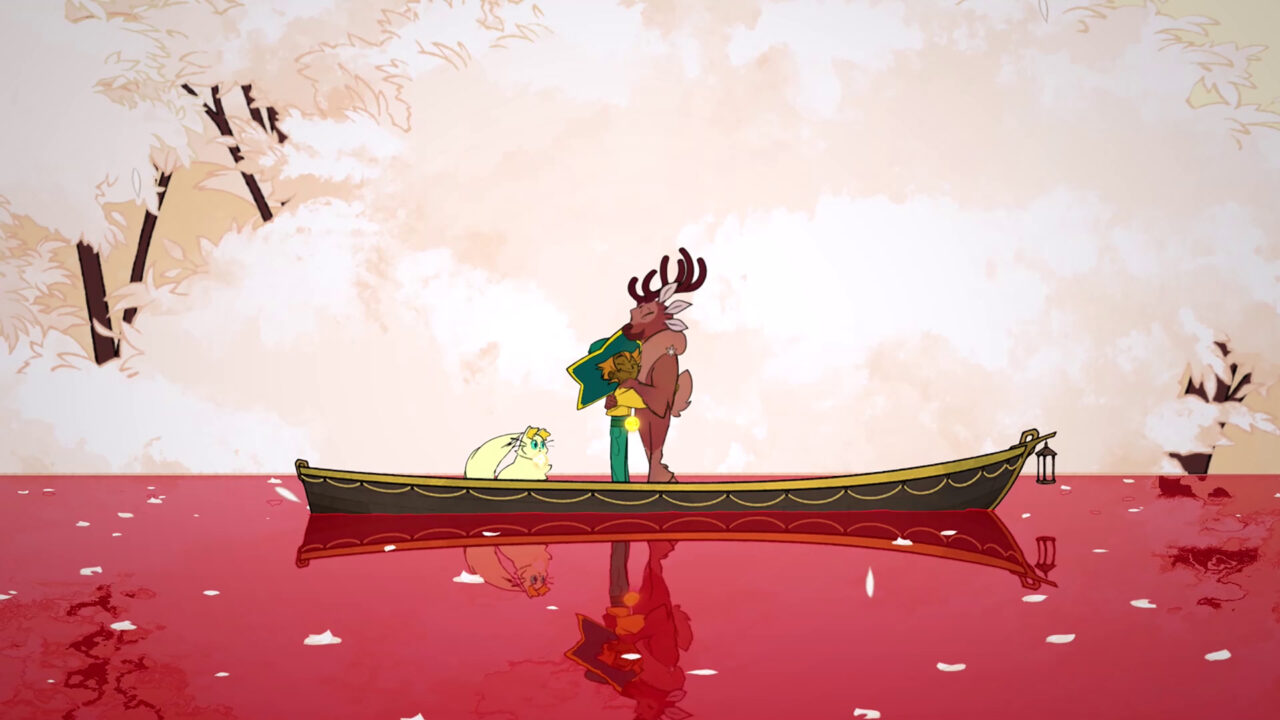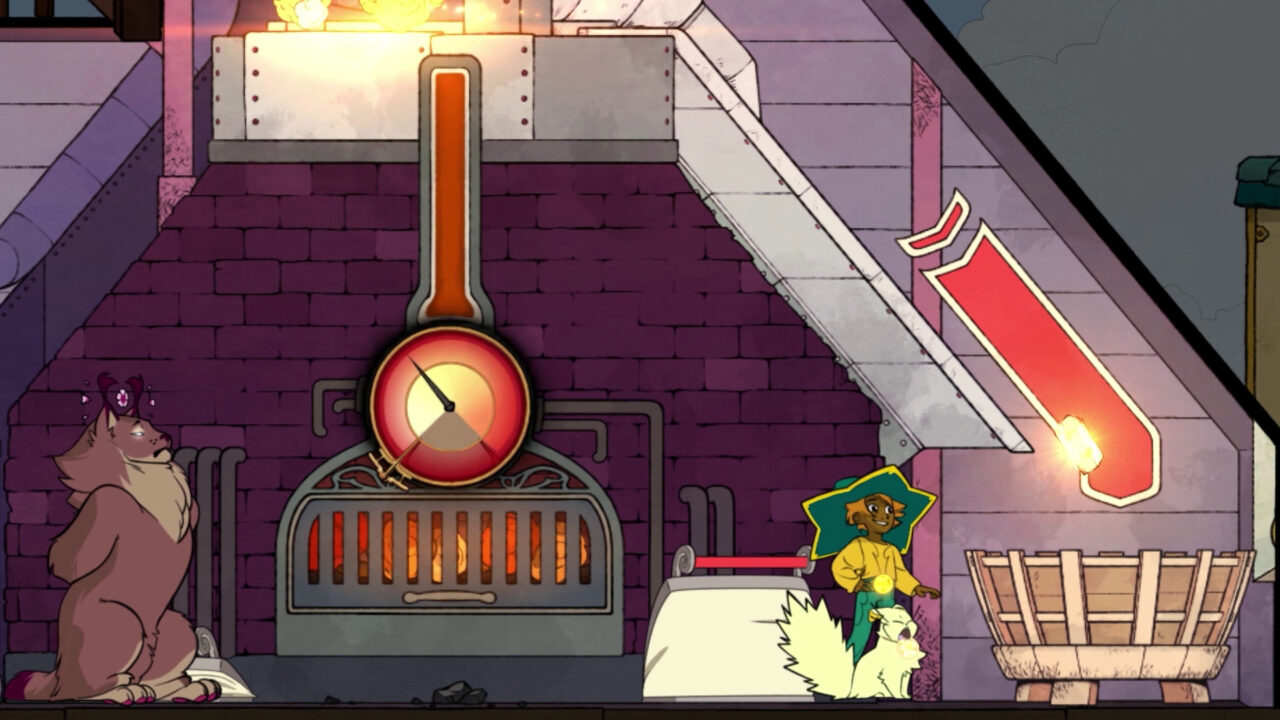Spiritfarer dazzled me with its reveal trailer during E3 of 2019. A little bit of fishing, shopping, hugging, shipbuilding, and a whole lot of emotional engagement. That’s what I expected, anyway. Unfortunately, those ratios are somewhat reversed, with a heavy emphasis on repetitive and simple tasks, experimental crafting, and waiting a long time to get from one place to another. Yet, at the same time, when Spiritfarer hits its groove and everything’s sailing at a steady clip, the gameplay feels meditative and interesting. That emotional engagement we were promised? Sparse, but also intense.
Stella is our sojourner in Spiritfarer who takes Charon’s place in his duties to release souls to the afterlife. She picks up spirits from various islands scattered across the sea who take up residence on her boat. After a while completing requests for her visitors, Stella eventually takes them to the Everdoor to say goodbye. While fulfilling requests, the patron may share small details about their lives, including regrets, desires, and fond memories. From a narrative perspective, this is the primary draw of Spiritfarer.

Unfortunately, the meaningful interactions are separated by large swaths of redundant gardening, cooking, and woodcutting that occur while going from one island to another, so that emotional intrigue surrounding our friends never really takes root in our hearts. Regardless, each time I took a spirit to the Everdoor, they had such a beautiful, bittersweet farewell complemented by exquisite music and incredible artwork that I almost forgave the hours of mindless activity. Most of the characters feel like they have layers just waiting to be explored, and I often wondered if I had somehow missed a way to access dialogue that would add meat to my experience.
Instead, the only meat I added was to my recipe codex when combing random foods together. Because completionism. This will be a draw for some players and a boring hell for others. While I can find value in the Zen of consistent, simple tasks, the problem with this in Spiritfarer is that it promises so much more, but offers what feels like padding in place of real content. Aside from combining accumulated items, other tasks that require “gameplay” include moving from left to right to cut down a tree, tracing a line to turn a log into planks, and timed hammer presses on a piece of heated ore. Do all of that a lot. Oh, and don’t forget to water your plants. Constantly. Wait for the animation three or six times, and try to keep an eye on them for when they’re grown enough to be cut down. Or just park your boat in a rainstorm and do all the crafting you need to do. The downside to this is you need something to do while sailing several minutes from one island to another.
Perhaps I’m the problem, though. I’ve approached the game as a goal-oriented activity, but Spiritfarer seems to be more about the cozy, chill approach to gaming. If I didn’t mind sitting around a lot and enjoying the art, I might have enjoyed it for what it is. Still, this doesn’t fix the problem that maintaining an emotional attachment to my friends is hard when the bulk of my interactions with them are clicking on them to hug or constantly feeding them so they won’t yell at me or complain.

Even if I weren’t reviewing the game, I would have kept at it until I “beat it,” just because it’s an enjoyable place to be. The artwork and care in the animations are truly stunning but won’t appeal to the more hardcore audience. Aurally, Spiritfarer has some absolutely incredible tracks that really pulled at my heartstrings, while the standard, relaxing background music while running around the boat never gets in the way. The controls never get in the way, which is important in a game where you’re doing the same thing over and over again.
Spiritfarer is a perfect example of a game where one has to keep their expectations in check. I honestly feel the trailers have misrepresented what the majority of the game is, and I wish the developers had actually cut the content in half or found a way to speed up the entire process. What’s here hints at the depth of quality that could have been, but the designers seemed more concerned with giving their audience their money’s worth rather than packing ten hours with high-quality content. Or maybe I should have engaged in more meditation over the 25-hour experience. Regardless, Spiritfarer has moments of beauty that will resonate with many players, while others, like myself, will be left wondering what could have been.


